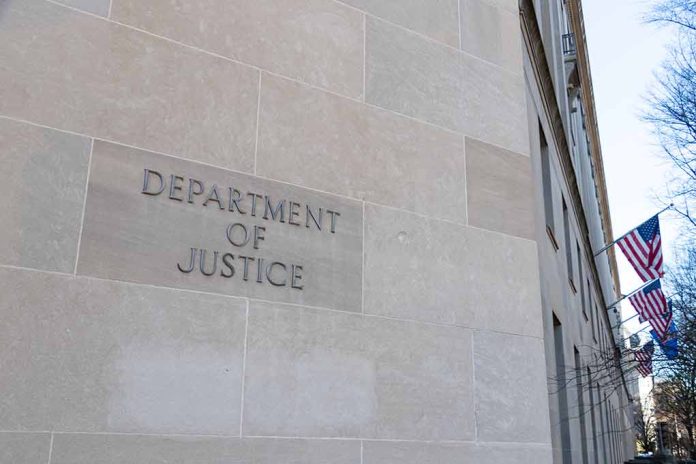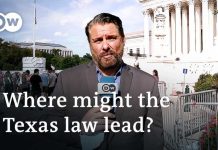
Peter Navarro’s criminal contempt conviction faces potential reversal as President Trump’s Department of Justice reevaluates the legal basis for the case that sent the former White House advisor to prison.
Key Takeaways
- The Department of Justice under President Trump is reconsidering the legal grounds for Peter Navarro’s 2023 criminal contempt of Congress conviction.
- Navarro was sentenced to four months in prison and fined $9,500 for refusing to comply with a subpoena from the January 6th Select Committee.
- The DOJ has requested a postponement of oral arguments to reexamine executive-privilege issues central to Navarro’s defense.
- US Attorney Ed Martin, who now oversees the case, has criticized Navarro’s prosecution and demoted two prosecutors involved.
- The DOJ must decide by August 29 whether to continue defending the conviction or change its stance.
Navarro’s Conviction Under Review
The US Department of Justice has signaled a potential reversal in the criminal contempt case against Peter Navarro, a former White House advisor to President Trump. Court documents recently filed reveal that the DOJ is reconsidering its stance on Navarro’s conviction, which resulted in a four-month prison sentence. The review centers on executive-privilege claims that formed the cornerstone of Navarro’s defense against charges stemming from his refusal to comply with congressional subpoenas related to the January 6th investigation.
“[The Justice Department has requested time] to reexamine its position on the executive-privilege issues implicated in this appeal,” said the US Attorney’s Office for the District of Columbia.
Details of the Conviction
Navarro was found guilty in 2023 on two counts of contempt: one for not appearing for a deposition and another for not producing documents as required by the House Select Committee investigating the January 6th Capitol events. The subpoena required Navarro to provide documents by February 23, 2022, and to appear for a deposition on March 2, 2022. Instead of complying, Navarro cited executive privilege regarding his communications with President Trump about what was referred to as the “Green Bay Sweep” strategy.
The conviction resulted in a four-month prison sentence and a $9,500 fine. The case was investigated by the FBI’s Washington Field Office and prosecuted by Assistant U.S. Attorneys Elizabeth Aloi and John Crabb Jr. Navarro has maintained throughout the proceedings that President Trump had asserted executive privilege over their communications, a claim that was rejected by the trial judge but now appears to be getting a second look under the current administration.
Justice Department’s New Direction
The US Attorney’s Office for the District of Columbia has requested a postponement of oral arguments in Navarro’s appeal to reexamine the executive-privilege issues central to the case. A three-judge panel on the D.C. Circuit Court of Appeals granted this request, giving the DOJ until August 29 to decide whether to continue defending Navarro’s conviction or adopt a different legal approach. This reconsideration comes as President Trump has referred to January 20, 2025, his inauguration day, as “Liberation Day.”
Ed Martin, the US Attorney now overseeing the case, has been openly critical of Navarro’s prosecution and has already demoted two prosecutors who were involved in the case. Martin has characterized Navarro as a “political hostage,” signaling a dramatic shift in how the Justice Department views the prosecution. Despite this apparent sympathy from the current administration, Navarro is reportedly not seeking a presidential pardon and instead wishes to continue his appeal to overturn the conviction on legal grounds.
Implications for January 6th Cases
The DOJ’s reconsideration of the Navarro case may have broader implications for other prosecutions related to the January 6th investigation. The review centers specifically on executive privilege claims, which could affect how similar cases are handled going forward. Navarro’s involvement in the “Green Bay Sweep” plan to contest the 2020 election results was a central focus of the House Select Committee’s investigation, but the legal basis for compelling testimony about communications with the President is now being reassessed.
While the DOJ deliberates, Navarro remains committed to clearing his name through the appeals process rather than seeking executive clemency. The outcome of this case could establish important precedents regarding executive privilege and congressional oversight, potentially reshaping the legal landscape for similar cases in the future.
Sources:
- District of Columbia | Ex-White House Trade Advisor Peter Navarro Sentenced to Four Months in Prison on Two Counts of Contempt of Congress
- Trump DOJ Opens Door to Reversing Peter Navarro’s Criminal Conviction














